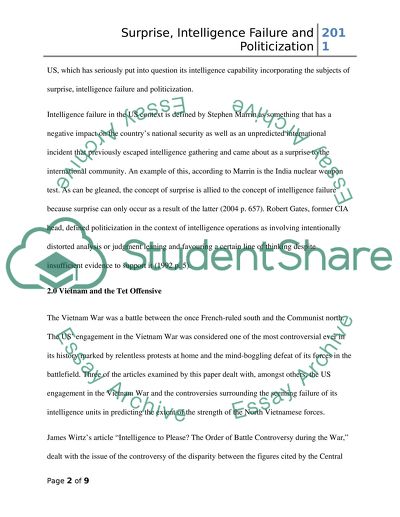Cite this document
(“Intelligence Failure and Politicization Essay Example | Topics and Well Written Essays - 2250 words”, n.d.)
Retrieved from https://studentshare.org/social-science/1407317-intelligence-failure-and-politicization
Retrieved from https://studentshare.org/social-science/1407317-intelligence-failure-and-politicization
(Intelligence Failure and Politicization Essay Example | Topics and Well Written Essays - 2250 Words)
https://studentshare.org/social-science/1407317-intelligence-failure-and-politicization.
https://studentshare.org/social-science/1407317-intelligence-failure-and-politicization.
“Intelligence Failure and Politicization Essay Example | Topics and Well Written Essays - 2250 Words”, n.d. https://studentshare.org/social-science/1407317-intelligence-failure-and-politicization.


